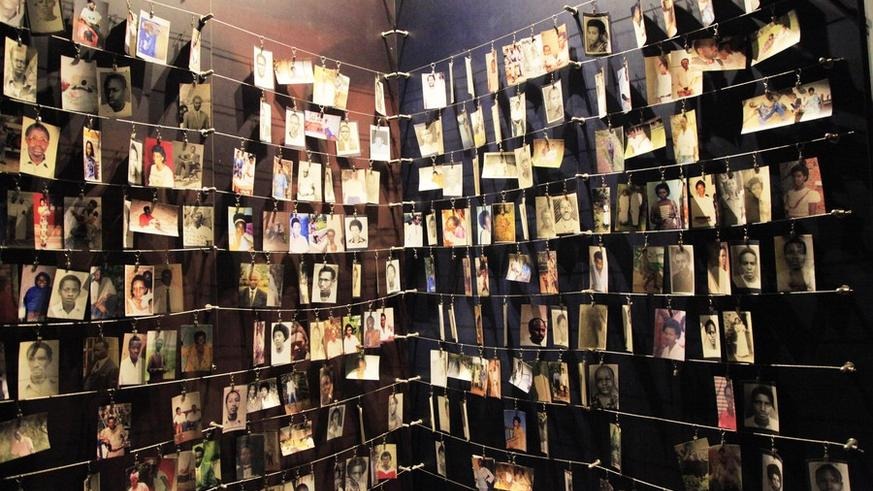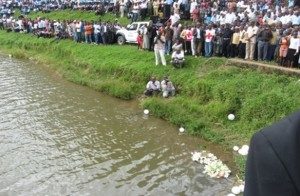
French journalist ‘discovers’ three top Genocidaires living scot-free in France
By James Karuhanga, The New Times
Three suspects under the ‘first category’ of perpetrators of the 1994 Genocide against the Tutsi live in France, unhindered, according to an expose by French online publication, Médiapart.
The report was published on Tuesday, May 18.
The trio, whose whereabouts were previously unknown is Hyacinthe Bicamumpaka, a former presenter on Radio Rwanda who subscribed to the ideals of Hutu-Power, Joseph Mushyandi, a lawyer close to the most extremist politico-religious circles, and Anastase Rwabizambuga, a former furniture seller now running a car spare parts business.
French investigative journalist Théo Englebert who authored the news article titled “Rwanda: le «Hutu Power» a survécu en France,” on Thursday, May 20, told The New Times that he got to the bottom of the story after a long process.
In English the article’s headline can be translated as ‘Rwanda: The Hutu Power thrives in France.
“These three names have emerged from a long process. I built a vast database from 400 documents filed by Rwandan extremists with the French administration that I patiently collected,” Englebert said.
“I then applied an optical character recognition on a set of old documents: lists of suspects from Rwanda, UN, NGOs, organizational charts, and so on. I harmonized the data in order to find matches. Among the results we have zeroed in on these three names from the 1996 list and we have verified that they are indeed the same people.”
France is home to hundreds of Rwandan extremists who, according to the online publication, organized themselves into associated networks across the country.
According to Médiapart, just like with other known cases, French authorities, as early as 1996, were aware but this did not prevent the three suspects from living there without being worried.
In February, Médiapart saw a document that reveals how, during the Genocide against the Tutsi, 27 years ago, instead of arresting ring leaders of the mass murders, French troops helped them flee. Many ended up in France.
Hyacinthe Bicamumpaka
Bicamumpaka, 65, resides in the north of France. During the Genocide, he worked as a presenter at Radio Rwanda and according to the report, he subscribed to the ideas of Hutu-Power which he carried on even after fleeing the country after the Genocide.
“From 1995, he participated in establishing the Rally for the Return of Refugees and Democracy in Rwanda (RDR) which metamorphosed into the current FDU-Inkingi” Englebert said, adding that this happened in the Lille area, near Belgium.
During the Genocide, he used his platform at the state broadcaster to regularly incite the public to hunt down and kill the Tutsi.
Later, he went on to work as spokesperson for the Minister of Defense.
“Even if we lose this battle, we will come back,” Médiapart quotes Bicamumpaka telling Jeune Afrique, as the regime was on the brink of collapse in early June 1994, before promising that the enemy of the genocidaires “will reign over a desert.”
Bicamumpaka, as noted, moved to France 15 days after this declaration and never returned to Rwanda.
In 1995, he lived in a reception center for asylum seekers located in a small town of Saône-et-Loire, far from the war, epidemics and hunger that raged in the camps of refugees where he had abandoned his compatriots.
Joseph Mushyandi
The second suspect, Mushyandi, was a lawyer by training.
Close to the most extremist politico-religious circles, he headed a puppet association for the defence of human rights linked to the Habyarimana régime.
Englebert said: “He was involved in disinformation together with Ferdinand Nahimana. He is a member of FDU and two extremist associations in Rouen.”
Nahimana is a former history professor and co-founder of Radio Télévision Libre des Mille Collines (RTLM), the extremist radio station that exhorted the public to kill the Tutsi.
Mushyandi, through his phony organisation is accused of having disguised the massacres perpetrated by the Habyarimana regime before the genocide, which he attributed them to the RPF-Inkotanyi.
He is suspected of having participated in the massacres in Kigali and then in his home region of origin, Gitarama, in the former Masango Commune, now Ruhango District.
Anastase Rwabizambuga
Rwabizambuga worked in a government department in charge of school furniture in Kigali.
He changed his name in 1999 following naturalization and resides in Hauts-de-Seine. The marital status information he provided to file his auto parts resale company in 2007 matches that on Rwanda’s 1996 list of Genocide fugitives.
“He first appeared in 1996 on a document from an association linked to RDR in the suburbs of Paris. He was its president between 2015 and 2019,” Englebert said, noting that the suspect was naturalized and changed his name to Anastase Rambier.
He currently lives in an area called Essonne, in the Paris region, where he runs a car spare parts business.
The online publication, as noted, tried to reach the three men without success on several occasions.

